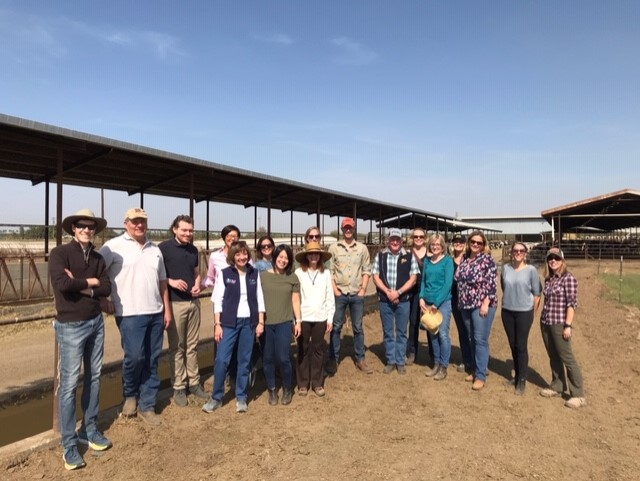
CDFA Secretary Karen Ross recently took representatives of the Governor’s Office and Cal-EPA on a tour of two Central Valley farms to show how they are successfully utilizing CDFA Climate Smart Agriculture grants and benefiting from the work that CDFA and its partner agencies are doing to facilitate adaptation to climate change through public policy.
At the Magneson Dairy near Ballico in Merced County, the group learned about the dairy’s use of an Alternative Manure Management Program (AMMP) grant to reduce methane emissions by converting to dry manure management practices. The dairy installed a solid separator, built a concrete slab for composting, purchased a compost turner and build a compost pack barn for their heifers. The compost is spread on pastures to increase fertility and improve forage quantity, thereby increasing pasture time for the cattle and avoiding manure accumulation in the barns.
Gemperle Farms in Turlock is involved in two Healthy Soils Program grant projects. An incentives grant supports the planting of cover crops to enhance carbon sequestration and improve soil fertility and water penetration. A demonstration project, in partnership with Community Alliance with Family Farmers and UC Davis, seeks to measure the net greenhouse gas flux in a cover cropped orchard.
CDFA wishes to thank CalCAN—the California Climate and Agriculture Network—for its assistance in setting up the tours.
CDFA’s Office of Environmental Farming and Innovation supports agricultural production and incentivizes Climate Smart Agriculture practices, resulting in a net benefit for the environment through innovation, efficient management, and science.


